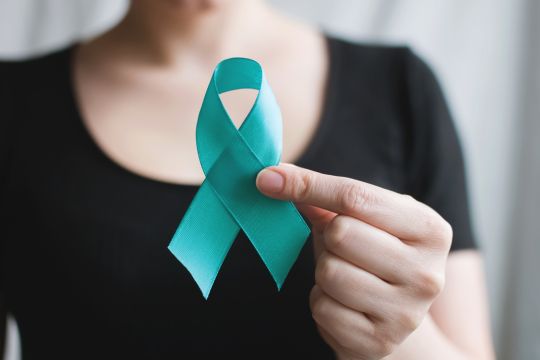Resources for Sexual Assault
Navigating life after experiencing sexual assault can be overwhelming, but you are not alone. This page is dedicated to providing vital information, support, and resources to help survivors and their loved ones find the assistance they need.
According to the U.S. Centers for Disease Control and Prevention (CDC), an estimated 1 in 5 women and 1 in 71 men have experienced sexual assault at some point in their lives. This includes both completed and attempted rapes, as well as those involving alcohol or drug-induced attacks.
Sexual assault is a devastating experience for anyone to go through. Knowing where you can find support after enduring this is crucial for coping with the emotional and physical toll a sexual assault can have.

Sexual Assault and Mental Health
Sexual assault can have a profound impact on a person’s mental health. It is a violation of trust and safety, and the trauma can linger long after the assault itself. Some of the most common mental health issues associated with a sexual assault experience include:
- Post-traumatic stress disorder (PTSD): Flashbacks, nightmares, and intense anxiety are all possible signs of PTSD.
- Depression: Feelings of hopelessness, sadness, and worthlessness are common.
- Anxiety: General unease, worry, and fear which can be overwhelming.
- Dissociation: Detachment from oneself or surroundings as a coping mechanism.
- Substance abuse: Turning to alcohol or drugs to numb emotional pain.
It is important to remember that everyone reacts differently to trauma. You may experience some or all of these symptoms, or none at all. What is most important to understand is that there is help available, and healing is possible.
Effective Addiction and Mental Health Treatment Recovery Resources for Sexual Assault
Therapy helps victims confront feelings of shame and stigma associated with sexual assault. It emphasizes that the assault was not their fault and supports victims in reclaiming their sense of identity and self-worth. Treatment addresses the wide-ranging psychological and emotional impacts of sexual assault, such as post-traumatic stress disorder (PTSD), depression, anxiety, and feelings of shame and guilt. Therapists help victims navigate these emotions in a supportive environment.
Sexual Assault and Substance Abuse
Sexual assault and substance abuse are complex issues. Both of these can have a profound impact on a person’s life. There is a well-established connection between the two, and they can often occur together.
People who have experienced sexual assault are at an increased risk of developing a substance abuse problem. This is often due to self-medication. In these cases, survivors may use drugs or alcohol to cope with the trauma of their assault.
On the other hand, people who abuse substances are also at an increased risk of sexual assault. This is because substances can impair judgment and coordination. This can make it difficult to resist unwanted sexual advances.
People who are under the influence of substances may also be more vulnerable to being targeted by perpetrators. If you are a survivor of sexual assault and are struggling with substance abuse, there are resources available to help.
We are open 24 hours a day, 7 days a week, 365 days a year.
Resources for Sexual Assault
If you have experienced a sexual assault, it is important to know what resources are available to you. This can be a difficult experience to process on your own, and it is strongly advised to seek support after going through something like this.
Fortunately, there are several resources available to sexual assault victims that can help them process and heal, including:
RAINN: RAINN is the nation’s largest organization committed to anti-sexual violence resources. Their mission is to support victims while working to prevent sexual violence and bring perpetrators to justice.
National Sexual Violence Resource Center (NSVRC): NSVRC provides research and tools to individuals who are working to end sexual harassment, assault, and abuse. Their work also supports the fight against racism, sexism, and oppression as a whole.
NOVA: NOVA is the oldest organization in the U.S. dedicated to assisting victims of sexual assault. It is a leader in advocating, educating, and credentialing for victims and the impacts of sexual assault.
VAWNet: This online network provides support for victims of gender-based violence and offers information and resources for those interested in joining the fight against domestic and sexual violence.
Asian Pacific Institute on Gender-Based Violence: This organization offers resources to AAPI communities for culturally specific domestic violence, sexual violence, trafficking, and other forms of gender-based violence.
Ujima Community: This organization serves as a national resource center that is dedicated to providing support to the Black Community and those who have experienced domestic, sexual, and community violence.
StrongHearts Native: This organization aims to restore power to Native Americans who have been impacted by domestic and sexual violence. It does this by providing opportunities for safety, sovereignty, and support.
These are just a few of the resources available to victims of sexual assault. Reach out to South Coast Behavioral Health for more information about getting help.
Recovering from Sexual Assault
Healing from sexual assault is a journey. It is important to understand that there is no right or wrong way to heal from this experience, and recovery will look different for everyone. There is also no set timeline for healing, so have patience with yourself.
There are several things that you can do to help your healing journey, including:
Talking to someone you trust: Sharing your experience can be difficult, but it can also be a big help. You can talk to a friend, family member, therapist, or a hotline volunteer.
Seeking professional help: A therapist can provide guidance and support as you process and heal from what happened.
Support Groups: Connecting with others who have been through similar experiences can be validating and helpful. This can include online or in-person support groups in your area.
Self-care: Take care of yourself physically and emotionally. Eat healthy foods, get enough sleep, and do activities you enjoy.
Ultimately, what will help you on your healing journey can look different from what works for others. The important thing is to understand that your feelings and experiences are valid, and that help is available.
Where Else Can Sexual Assault Victims Go for Help?
If you are a victim of sexual assault and are struggling to cope, it can help to seek professional treatment. South Coast Behavioral Health offers both trauma and gender-specific treatment programs to help you heal.
These programs can help you target specific issues and recover from the trauma associated with your assault in a safe and supportive environment. Depending on your specific care needs, you may choose to progress through several levels of care.
Our treatment team will work with you to build a personalized treatment plan, which will include both holistic and evidence-based treatment approaches. If you are ready to get started on the road to a better life, reach out to us today.
Get A Confidential Assessment From A Recovery Specialist
Our Addiction Treatment Centers in California
Our network of California treatment centers can help college students overcome their mental health and addiction issues safely and effectively. Our process involves the latest and greatest evidence-based and holistic practices for a well-rounded approach to recovery. We offer gender-specific programs for an even more personalized approach to healing.
Irvine, CA
We provide treatment for drug and alcohol use disorders within our medical detox and residential treatment centers in Irvine, CA.
Huntington Beach, CA
We provide addiction treatment services for women within our medical detox and residential treatment centers in Huntington Beach, CA.
We provide addiction treatment for men within our residential inpatient facility in Costa Mesa, CA.
We provide care for men and women in recovery from substance abuse within our PHP and IOP treatment facility in Newport Beach, CA.
Our caring staff of recovery professionals is available 24/7 to assist in the recovery process. Call us today at 866-881-1184 for more information about how we can help college students with recovery.



